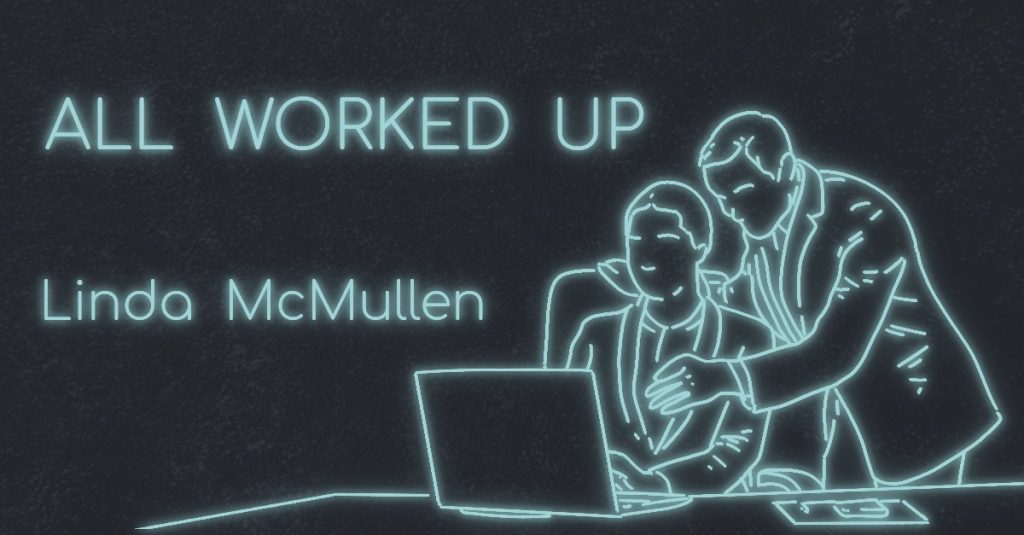He often simply appears in my office, insouciant grin and silver hair: “I want to show you something.” In the age of #metoo, he is carefully respectful of a female subordinate. No hands ever touch in the exchange of—
A binder with reference documents, paginated and neatly tabbed; a viciously indiscreet email from a colleague; a rare compliment on a memo from his own supervisor… Whatever it is. For my eyes.
For me.
Or: I’ve written his remarks for a major briefing the next day, and he invites me to pull up a chair, next to him, so we can amend and annotate. We talk about politics—TV, movies, books—and our colleagues—
—our spouses.
Or: By 7 p.m., he says, “I just want to go home and sit on my couch.”
I say, “Me, too.”
He grins, “You want to be on my couch?”
And then: half-laughing alarm. “Please forget I just said that.” The word career-ending hovers; I am painfully aware of my own femininity. But he doesn’t want to stifle the burgeoning… unspoken… whatever, either, so he launches into an anecdote about his runaway mouth. And one or the other of us references a “No touching!” moment from Arrested Development.
Because.
And I shut my door, sometimes; I try to dispel this abysmally adolescent captivation. I tell my private rosary: I’m a mother. A professional. An adult. I adore my husband.
And I—we—
—chose work rooted in realism. And devoted to the art of the achievable.
Then I remember we have a meeting to prep.
Or we have a joint phone call in his office.
And our building has an open-door ethos.
And so I open it again. And I vacillate between self-loathing at becoming such a morally compromised cliché and vapid daydreams that would embarrass a self-aware twelve-year-old.
He pops his head in the door. And I try, so very hard, to suck in my cheeks.

